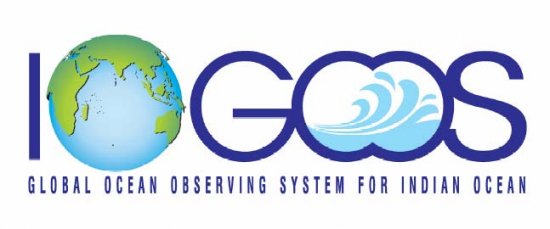ESSO - Indian National Centre for Ocean Information Services
(An Autonomous Body under the Ministry of Earth Sciences, Govt. of India)
Activities of IOGOOS
- Enhance the Ocean Observing System
- Data Management,Data Exchange and Communication
- Ocean Services
- Capacity building
- Research
- Co-operation with other programmers and bodies
- Identify gaps and deficiencies in the existing/planned ocean and coastal observing system (in-situ and remote sensing) and develop a programme for realising a well-designed Ocean Observation System for the region, adhering to the 'GOOS principles'.
- Promote the development of low cost and efficient instrumentation and observing systems.
- Promote the development of low cost and efficient systems for acquisition, management, processing and interpretation of data.
- Expand and strengthen networking of countries using modern technology including internet for real and near real time exchange of data and products.
- Promote the development of standardized operational data procedures, including data quality control and data management.
- Provide high quality data and time series for a better understanding and improved management of the Indian Ocean ecosystem.
- Collaborate with other programme and bodies in the field of data collection and data management
- Co-ordinate GOOS data acquisition with existing regional and national data gathering systems under the agreements and conventions (e.g. relating to pollution monitoring, marine meteorology, navigation, safety at sea etc.)
- Publish findings of meetings, workshops, studies and other documents commissioned by the IOGOOS members and submission of documents to international meetings related to GOOS and collective representation of GOOS to regional and national agencies when requested by members.
- Identify priorities for operational oceanography and ocean services in the Indian Ocean region, based on evaluation of social and economic benefits.
- Promote the development of regional and local operational oceanography, taking into account the components of GOOS, for realising services and products of maximum value to the countries of the region.
- Support operational oceanography and services in collaboration with marine-related public and private sector organizations and programmes.
- Identify the training needs of countries in the region and promote organisation of training courses, workshops and seminars.
- Promote the development of common infrastructure, major systems or capital installations required to support operational oceanography in Indian Ocean.
- Promote and aid capacity building, exchange of know-how, technology and personnel as well as collaboration, within the framework of GOOS.
- Promote pilot projects and studies in the countries of the region to demonstrate the economic benefits of GOOS
- Strengthen collaboration with GOOS and JCOMM capacity building panels and IOC-TEMA including IOCINWIO and IOCINDIO capacity building programmes.
- Promote research and pre-operational research for solving problems relating to operational oceanography in the Indian Ocean.
- Contribute to international planning and implementation of GOOS.
- Assist in developing policies for the furtherance of GOOS and co-ordinate the best regional participation in GOOS, identifying where greatest value is added by collaboration
- Promote collaboration between existing regional multi-national agencies, programmes, organisations, and initiatives having expertise in oceanography, operational systems, and remote sensing of the ocean.
- Collaborate, as appropriate, with GOOS-Africa, NEAR-GOOS, SEA-GOOS, WAGOOS and WIOMAP through joint projects and activities.
- Cooperate, as appropriate, with organisations concerned with the assessment of climate change, global environmental research, and the impacts of climate variability and climate change,
- Promote collaboration with space agencies and remote sensing scientists and engineers so as to ensure optimum integration of both in situ and remote sensed data in operational oceanography;
- Promote collaboration between institutes and agencies in providing/attracting aid and assistance to developing countries for operational oceanography, and the necessary capacity building.
- Provide as appropriate, expertise, consultants, etc., to the GOOS Steering Committee (GSC), IOC WMO UNEP Committee for GOOS (I-GOOS), and to the international sponsoring agencies of GOOS.




